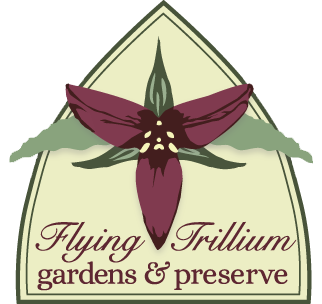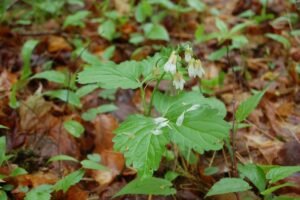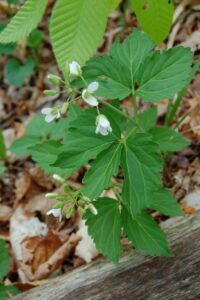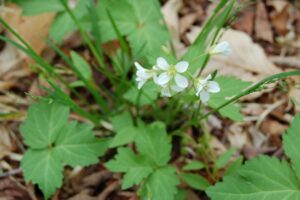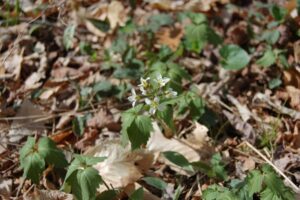By Kate Brittenham
When we first began putting together this list of pollinator-friendly plants, we wanted to include species that are less well known, and could use a moment in the spotlight. Cardamine diphylla (Toothwort) is one such plant. Native to Northeastern woodlands, it blooms from March to June, a sweet, delicate bell-like white flower which attracts early pollinators such as long-tongued bees and flies. This plant itself typically doesn’t get much higher than 16”, but it has a clonal characteristic, forming colonies.
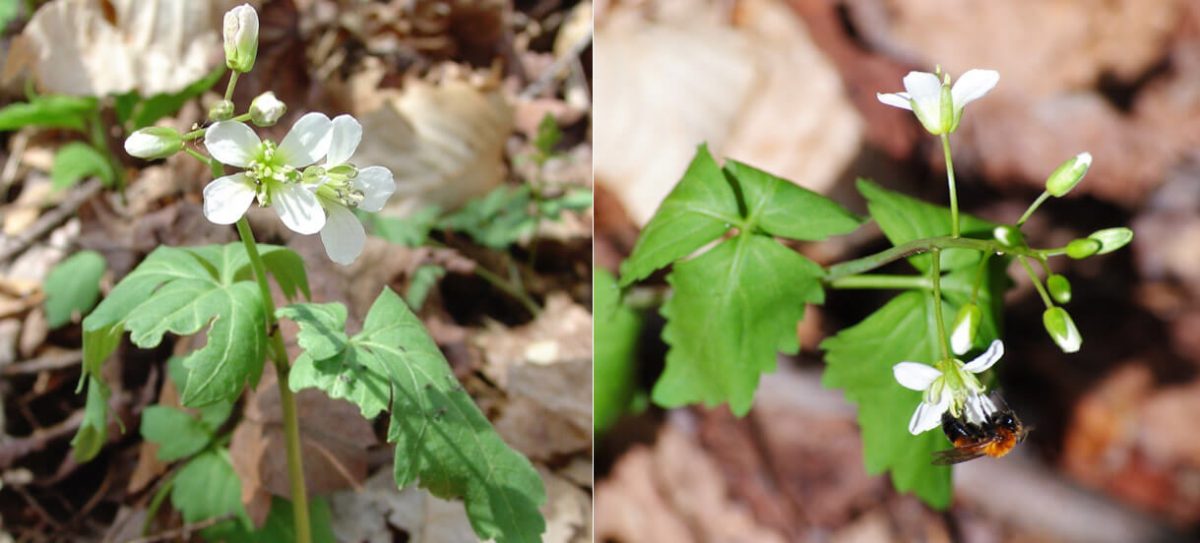
In addition to providing early season nectar, Cardamine plays host to Pieris virginiensis (West Virginia White), a butterfly commonly mistaken for the common cabbage white, which lays its eggs on the plant’s leaves. The invasive plant garlic mustard will sometimes fool the butterfly into laying eggs on its leaves instead, as both plants are members of the Mustard Family. But although distantly related, the caterpillars of the West Virginia White cannot digest the leaves of garlic mustard, and perish. The proliferation of invasive garlic mustard may be one reason the West Virginia White is becoming scarce. Perhaps planting its host plants, like Cardamine and other native mustards, will encourage its survival.
There appears to be a common misconception that if a plant is not found in bright, sunny meadows, it is not a pollinator plant. Cardamine is just one plant that demonstrates how untrue that is. We chose Cardamine, not only to bring attention to a plant that is not commonly associated with pollinators, but also to show that even if you have a shady, wooded area, you can still provide habitat for pollinators.
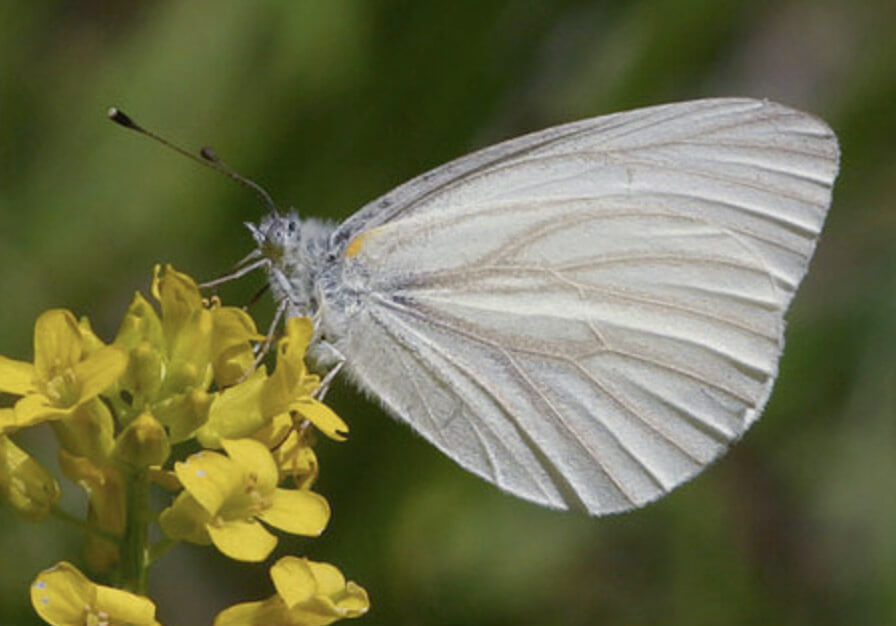
Remember, pollinators have been here for many, many, years developing plant relationships. It should come as no surprise that they have not limited themselves solely to the open, sunny meadows. So if you have a shade garden, rest assured that you can incorporate pollinator-friendly plants such as Cardamine diphylla. While not a common plant at nurseries, there are some that do provide it for sale, such as Edge of the Woods Nursery in PA. Consider doing a quick search with local nurseries—some of them may never have heard of it, but consumer demand is a powerful thing. If more nurseries hear that people desire plants they do not stock, they may become interested in carrying those species.
Photos courtesy of Carolyn Summers.
